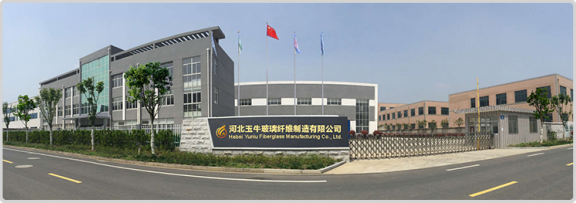According to a report by Lucintel, an expert in the composite material market, the composite material industry in the United States has increased by 25 times since 1960, while the steel industry has only increased by 1.5 times, and the aluminum industry has increased by 3 times.
When the US “Composite Manufacturing” magazine was preparing this year’s “Industry Status Report”, it invited several industry experts to introduce their observations on several major areas-glass fiber, carbon fiber, aerospace, and automotive markets. The following is the CEO of Lucintel’s views on the glass fiber market.
As more original equipment manufacturers use composite materials in various applications, the prospects for glass fiber composite materials are promising. Glass fiber is the mainstream reinforcement material for composite materials. It is estimated that the global value of glass fiber will reach 9.3 billion U.S. dollars by 2022, with a compound annual growth rate of 4.5% since 2016. On the supply side, Lucintel estimates that the original glass fiber production capacity will increase or upgrade at least 20% in the next two to three years to meet the demand for glass fiber. In 2016, the global glass fiber production capacity for composite materials was 11 billion pounds (approximately 4.99 million tons), and the current utilization rate is about 91%.
In recent years, glass fiber manufacturers have implemented strategic shifts. Jasmine, AGY, Chongqing International Composites and Jushi have established subordinate fiberglass enterprises in North and South America. European glass fiber manufacturers are also expanding production capacity to fill the vacuum created by the implementation of anti-dumping and countervailing duties on Chinese manufacturers. LANXESS invested US$19.5 million to expand the production capacity of its glass fiber plant in Belgium, and Jasmine has invested US$65 million to expand the production capacity of its glass fiber plant in Slovakia.
In addition, the glass fiber production capacity of Chinese manufacturers in the Middle East has increased significantly. In 2013, Jushi established a factory in Egypt with a capacity of 80,000 tons, and in 2016 it added another 80,000 tons. From 2017 to 2018, the total annual production capacity of Jushi’s Egyptian plant is planned to reach 200,000 tons. Another Chinese manufacturer, Chongqing International, has established a joint venture with Abahsain Fiberglass of the Kingdom of Bahrain. The annual production capacity of its plant is planned to reach 180,000 tons.
In addition to increasing factory capacity, some companies are developing advanced glass fibers, the trend of which is to improve tensile strength, modulus and heat resistance. In order to meet the market’s demand for higher-strength materials and facilitate the competition of glass fibers with carbon fibers and other materials, glass fiber manufacturers are working hard to develop glass fibers with a tensile strength two to three times higher than existing products. Target uses include wind turbine blades, bicycle racks and aerospace components. All in all, glass fiber reinforced plastics are facing good future opportunities. In order to benefit from these opportunities, OEMs, Tier 1 suppliers and material suppliers need to work together to deploy appropriate investment and resources, develop new technologies, and achieve lightweight, low-cost, composite repair and recycling. Strategic goals.
Hebei Yuniu Fiberglass Manufacturing Company Limited is a fiberglass material manufacturer with over 10-year experience, 7- year exporting experience.
We are manufacturer of fiberglass raw materials, Such asfiberglass roving, fiberglass yarn, fiberglass chopped strand mat, fiberglass chopped strands, fiberglass black mat, fiberglass woven roving, fiberglass fabric, fiberglass cloth..And so on.
If any needs, please contact us freely.
We will do our best to help and support you.
Post time: Sep-22-2021
